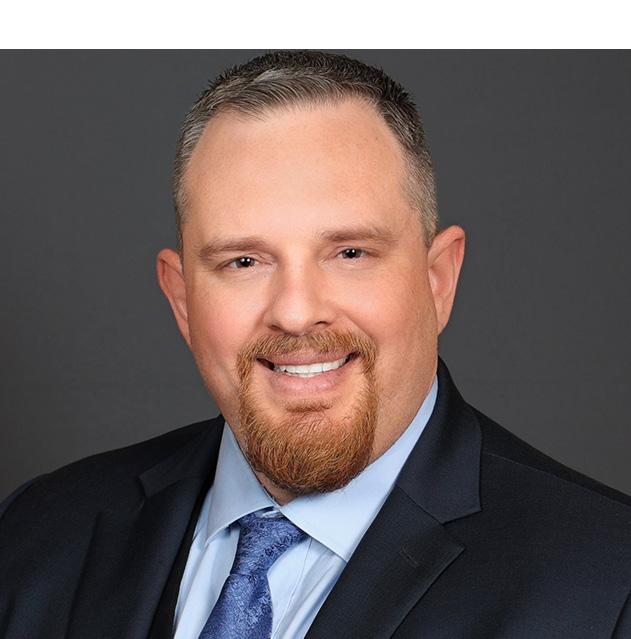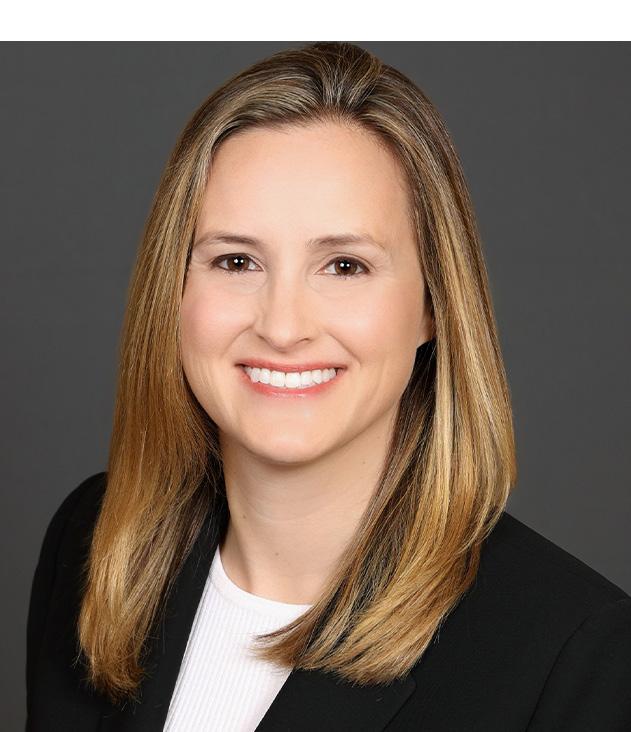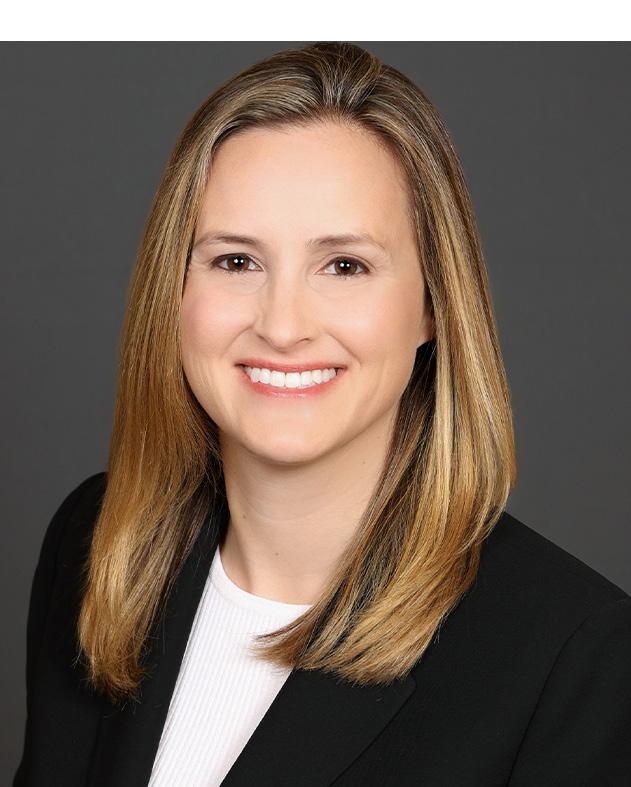






In 2011, a city firefighter who worked in a paramedic assignment was diagnosed with a “physical disability, mental disability, or protected condition.” In 2016, the fire chief removed him from his paramedic assignment. In 2020 and again in 2021, the firefighter asked for, but was not reinstated to, that assignment.
In January 2022, the firefighter sued the city. He claimed the following violations of the California Fair Employment and Housing Act (FEHA): disability and age discrimination; failure to accommodate his disability; and failure to engage in the interactive process. The firefighter claimed the city regarded him and/or treated him as having or having had a “physical disability…’” since 2011. He further alleged that age and disability discrimination occurred when he was removed from his paramedic assignment in 2016, and that the discrimination continued in 2020 and 2021 when he unsuccessfully sought reinstatement to that assignment. The firefighter, however, did not allege: specific evidence of age discrimination; or that he asked for a reasonable accommodation.
The city filed multiple demurrers and motions to strike. The city’s demurrers were sustained, but with leave to amend. The firefighter then filed a third amended complaint (TAC) in July 2023. This time the superior court sustained the city’s demurrer without leave to amend. The court dismissed the entire case because the firefighter: did not meet the then-existing one-year FEHA statute of limitations to file his administrative complaint; failed to state causes of action for age or disability discrimination; and violated the sham pleading doctrine by amending his complaint to delete prior admissions without explanation.
A firefighter participated in several unpaid and voluntary activities with a city fire department, including the department’s Urban Search and Rescue (USAR) program, training cadre, and grant committee. The firefighter suspected that one of the department’s battalion chiefs and the fire chief were involved in a “scheme” to obtain emergency federal funds, and the firefighter reported this suspicion. The department hired an outside investigator who concluded that the firefighter’s claims were unfounded.
After the firefighter reported the alleged scheme, the firefighter was reassigned from the training cadre (along with 11 other volunteers) and the USAR program was restructured resulting in a change of his USAR title but no changes to his pay, duties, schedules or work location. The firefighter also stopped doing work for the grant committee, but his participation in any grant committee was disputed. The firefighter ultimately elected to stop participating in the USAR program.
The firefighter sued the department and the city for whistleblower retaliation and age discrimination in violation of the Labor Code and Fair Employment and Housing Act (FEHA). The department moved for summary judgment on the ground that these events regarding the firefighter’s extracurricular activities did not amount to an “adverse employment action” as a matter of law. The trial court agreed and granted the motion. The firefighter appealed.
The California Court of Appeal upheld the trial court’s grant of summary judgment in favor of the department and city. The Court of Appeal made a clear distinction between actions which negatively affected an employee’s
official position and duties, and actions concerning “adjacent activities” which did not. The Court of Appeal agreed with LCW that the firefighter failed to show how the change in the firefighter’s extracurricular activities affected his official position and duties.
A former county employee sued the county for discrimination and retaliation in violation of the California Fair Housing and Employment Act.
Over the subsequent two years, the former employee and their counsel willfully failed to comply with the Superior Court’s orders and discovery laws and protocols. Initially, Partner Jesse Maddox and Associate Attorney James Bonnie obtained significant monetary sanctions against the employee and their counsel for the employee’s refusal to answer a request for admission. They also obtained a Court order requiring the employee and their counsel to supplement their written discovery responses.
The employee’s and their counsel’s willful violation of the Court’s orders and the law continued even following the initial sanctions order, including abusing the AttorneyClient privilege objection and refusing to identify documents and communication that the employee lost or were not in the employee’s custody and control. After a particularly egregious discovery dispute, the county moved for terminating sanctions.
At the hearing on the motion, Associate Attorney James Bonnie persuaded the Court that the prior monetary sanctions had been ineffectual and that additional monetary sanctions would therefore be futile.
The Court agreed, finding that the county had been harmed in lost time and taxpayer money in the lengthy and unresolved litigation. The Court also found that the county’s defense was prejudiced because two years after the litigation commenced, the county still had not received discovery to which it was entitled. Based on the entire record of discovery abuses, the Court ordered a terminating sanction of dismissal with prejudice.
The county provides occupational and physical therapy, among other things, to children with a variety of medical conditions. The therapy is subject to many regulations, including the need for therapists to provide periodic medical evaluations, and prepare detailed reports to support billings.
In June 2020, the therapist received a “Meets Expected Standards” overall rating on her performance evaluation, but the evaluation noted that the therapist: was below average in the number of treatments per week; and was behind in completing client re-evaluations.
In July 2021, the therapist again received an overall “meets expected standards”, but received “improvement needed” in several categories, including the same problems noted in the 2020 evaluation as well as filing inaccurate evaluations and reports. The county issued the therapist a performance improvement plan (PIP). The therapist complained that the PIP was retaliation for her request for accommodation and concerns about the county’s COVID protocols.
The therapist then filed a complaint, claiming she was not accommodated and she was discriminated against for seeking to work remotely. The county’s investigation found that no discrimination had occurred. The investigation showed that the county had eight interactive process meetings with the therapist and provided several accommodations.
The county’s review of billing records indicated the therapist had billed a high amount to Medi-Cal, without preparing supporting reports. The county investigated and found that the therapist had: billed for work 11 times without documentation; and her untimely evaluations endangered her patients’ health. The county noticed the therapist for demotion so that she could have more training and supervision.
The therapist responded to the notice of charges that: she had an excellent record; it was difficult to access all the files she needed to do her work; and the lack of client evaluations was likely due to patients missing appointments. The county issued a final notice to demote the therapist because she should have been aware of billing requirements and she had endangered patients. The therapist appealed. She claimed: she did not have
sufficient notice of performance failures; her demotion was retaliation for her complaints and requests for accommodation; and that she was “coachable” and recognized her need to improve.
The hearing officer upheld all charges and the penalty of demotion. The hearing officer noted that: the county had proved the charges; the therapist had notice of her performance failures; there was no causal connection between the disciplinary action and the therapist’s requests for accommodation and complaints; and that the therapist did not present a sincere or credible demeanor at the hearing.
The hearing officer’s decision became final after the therapist withdrew her appeal to the Employee Appeals Board.
Two former city police officers were paid accrued leaves at their final base salary rate upon separation. Their union filed for a writ of mandate alleging that the city had a legal obligation to pay out the former officers’ vacation and sick leave at their base rate plus incentive pays.
The city demurred to the causes of action and the court sustained with leave to amend. The union filed a second petition arguing that the cash outs should have included incentive pay at separation under the Memorandum of Understanding, the city’s personnel rules, or alternatively due to past practice. The city demurred to the second petition as well. After extensive oral argument at the demurrer hearing on the second petition, the Court sustained the city’s demurrer without leave to further amend, effectively ending the matter. The Court’s order tracked LCW’s arguments.




Patrick Marsh, an Associate in our Fresno office, provides expert labor and employment counsel and representation in a wide range of matters.
Peter A. Cress, an Associate in our Sacramento office, provides expert advice and counsel on labor and employment law matters, as well as conducting workplace investigations.
Charles R. Hellstrom, an Associate in our Sacramento office, provides expert advice and counsel on labor and employment law matters.
In 2010, the Palo Alto City Council considered altering a provision in its charter. That provision required that certain labor disputes with its public safety unions be resolved through binding interest arbitration. The City believed that the Meyers-Milias-Brown Act (MMBA), at Government Code section 3507, did not require prior good faith consultation with its public safety unions.
The City Council adopted resolution 9189, which proposed that City voters amend the City Charter at article V to repeal binding interest arbitration and replace it with other dispute resolution procedures. The City held a special election in November 2011, and the voters passed Measure D, to repeal binding interest arbitration.
The firefighters’ union sued. In prior decisions, the Court of Appeal and the Public Employee Relations Board (PERB) both concluded that the City violated Section 3507 by enacting resolution 9189 and submitting Measure D to the voters without having first consulted in good faith with the firefighters’ union. The Court of Appeal remanded the case to PERB to determine the remedy.
PERB rejected the City’s objections that the City’s constitutional home-rule privileges insulated the voterapproved Measure D from PERB’s remedial reach. PERB ruled that the City’s action to refer Measure D to the voters was void, and directed the City to consult in good faith with the firefighter’s union upon request. Both the
firefighters’ union and the City, however, disagreed about whether the City complied with PERB’s orders. The City did not reinstate the charter provision as it existed prior to the passage of Measure D.
The firefighters’ union then requested the California Attorney General (AG) to bring a quo warranto action to decide the remedy to the MMBA violation. The AG may authorize the use of the quo warranto procedure, under Code of Civil Procedure section 803, to sue on behalf of the people to determine whether any corporation – including a municipal corporation – has unlawfully held or exercised any franchise within the state. The AG authorized leave to sue, noting that the public has an interest in ensuring that City Charter amendments are validly enacted.
The firefighters’ union filed the quo warranto complaint. The union argued that the trial court should invalidate Measure D because the City failed to consult in good faith before placing it on the ballot. The City argued that the voter’s election was not an unlawful exercise of a franchise, and that the City’s MMBA violation should not invalidate the will of the electorate.
The trial court did not invalidate Measure D. Instead, it retained jurisdiction for the limited purpose of issuing a final judgment invalidating Measure D if: the City and the firefighters’ union agreed to use alternative procedures to binding interest arbitration; or the City passed a resolution to pursue a charter amendment alternative to Measure D; or PERB determined that the City failed to consult in good faith with the affected public safety unions. The firefighters’ union appealed.
The California Court of Appeal concluded that once the trial court determined that the City’s submission of
Measure D to the voters violated the MMBA, the trial court abused its discretion by failing to invalidate Measure D. The Court of Appeal remanded the case to trial court to: 1) order the City to restore the pre-amendment portion of article V to the City’s Charter; 2) invalidate Measure D; and 3) provide any other appropriate relief.
People ex rel. International Association of Firefighters, Local 1319, AFL-CIO v. City of Palo Alto, 102 Cal.App. 5th 602 (2024).






Meyer Kama sued the administrator of his former employer, the Transportation Security Administration (TSA), alleging Title VII retaliation. The TSA terminated Kama’s employment based on his failure to cooperate in an investigation into whether he received illegal compensation for assisting other employees during internal agency investigations.
Kama did not dispute that the TSA's reason for terminating him was a legitimate and non-retaliatory reason, but instead claimed that this reason was merely a pretext to cover up unlawful retaliation. To establish this claim, Kama relied primarily on the temporal proximity between the date of his last formal EEO complaint and the date of his termination. Kama contended that the
56-day interval established illegal pretext by proximity alone. He also cited other circumstantial evidence to support his pretext claim. The district court disagreed and granted TSA’s motion for summary adjudication.
The Ninth Circuit Court of Appeals held that the temporal proximity between Kama’s last formal EEO complaint and the date of his termination was not sufficient, by itself, to support his claim. The 56-day period was considerably longer than the time periods in nearly all of the cases that Kama relied upon. Also undermining Kama’s temporal proximity argument was the fact that there was a strong temporal link between his noncooperation and his termination. The panel also rejected Kama’s list of circumstantial evidence. The Ninth Circuit affirmed the district court’s grant of the motion for summary adjudication.
Meyer Kama v. Mayorkas, 2024 U.S. App. LEXIS 17666 (9th Cir.).










Erika Paleny worked for Fireplace Products U.S., Inc. Paleny informed her manager of her plans to undergo oocyte (egg) retrieval procedures for donation and future personal use. Paleny claimed that her manager disapproved of the procedures and scolded her for needing time off. After Paleny asked for additional time off for her procedures, her manager allegedly became angry and terminated Paleny’s employment that same day.
Paleny then brought 10 causes of action against her employer and manager, including harassment, discrimination, retaliation, and failure to accommodate claims under the Fair Employment and Housing Act (FEHA) based on sex (i.e., due to pregnancy). Her manager and employer argued that oocyte retrieval was not considered a characteristic protected by the FEHA because she was never pregnant or attempting to get pregnant, nor was she disabled or requesting accommodations during her employment. In response, Paleny argued that freezing her eggs for potential future use qualified as a pregnancy “related medical condition” under the FEHA.
The trial court granted the employer’s and manager’s motion for summary judgment, finding that FEHA’s protections did not extend to medical procedures to donate eggs to others or freeze them for a possible future pregnancy. The trial court found that Paleny could not establish that she had a pregnancy-related medical condition, nor could she establish that she was disabled, or had engaged in FEHA-protected activity.
On appeal, Paleny argued that the trial court interpreted the FEHA too narrowly because procedures for future pregnancies were protected. The California Court of Appeal found that Paleny was not pregnant nor disabled by pregnancy during her employment, and thus could not claim entitlement to FEHA’s pregnancy disability law. The Court also found that Paleny did not have a medical condition related to pregnancy. The egg retrieval procedure did not constitute a medical condition related to pregnancy under the FEHA because Paleny was undergoing an elective
medical procedure without an underlying medical condition related to pregnancy. Therefore, Paleny did not have a protected characteristic under the FEHA.
Paleny v. Fireplace Products U.S., Inc., 103 Cal.App.5th 199 (2024).
Long before Title VII was adopted, federal law codified at 42 U.S.C. section 1981 prohibited discrimination on the basis of race. In this case, the U.S. Court of Appeals for the Ninth Circuit held that discrimination against U.S. citizens on the basis of their citizenship is also prohibited under 42 U.S.C. section 1981.
Purushothaman Rajaram, a U.S. citizen and information technology professional, alleged that Meta Platforms, Inc. refused to hire him because it preferred to hire noncitizens holding H-1B visas for lower wages. Rajaram brought a class action asserting a single claim: that Meta violated section 1981 by discriminating against U.S. citizens in hiring.
Section 1981(a) states that “[a]ll persons within the jurisdiction of the United States shall have the same right in every State … to make and enforce contracts, … and to the full and equal benefit of all laws and proceedings for the security of persons and property as is enjoyed by white citizens….”
The Ninth Circuit held that section 1981 prohibits employers from discriminating against U.S. citizens because an employer that does so gives one class of people—noncitizens, or perhaps some subset of noncitizens—a greater right to make contracts than “white citizens.” If some noncitizens have a greater right to make contracts than “white citizens,” then section 1981(a) is violated.
Rajaram v. Meta Platforms, Inc., 105 F.4th 1179 (9th Cir. 2024).
Thomas Perez, a haul truck driver for Barrick Goldstrike Mines, Inc., claimed that he was injured when his truck collided with the wall of a mine. Perez did not report the collision until the end of his shift, hours later, even though the Barrick policy requires immediate reporting. Neither an on-site emergency medical technician who examined Perez, nor a doctor who treated him later, found any outward signs of injury or abnormalities. Perez claimed severe pain from certain movements, so his doctor certified Perez to remain off-work for 11 days. Perez used Family and Medical Act Leave (FMLA) and returned to work 18 days after the alleged accident, with no restrictions. Barrick never requested a recertification or obtained a second medical opinion.
Instead, Barrick investigated Perez’s alleged accident. Barrick found no physical evidence that Perez’s truck had collided with a mine. Barrick hired a private investigator to follow Perez and to confirm whether he was fraudulently taking FMLA leave. Over the course of three days, the investigator captured video of Perez doing various activities without visible signs of difficulty or discomfort, including driving through town, gambling at a casino, performing repair work at his rental property, repeatedly lifting and holding both arms over his head, and carrying and using a power drill and other tools and equipment. Barrick then confronted Perez and fired him after concluding that he had faked his injury and violated company policy.
Perez sued his former employer for interfering with his FMLA rights when it terminated his employment. The jury in the district court found that Perez failed to show by a preponderance of the evidence either that he had a serious health condition preventing him from doing his job, or that Barrick terminated him because he sought protected leave.
On appeal to the U.S. Court of Appeals for the Ninth Circuit, Perez contended that the U.S. District court erred in its instructions to the jury. Perez argued that the district court should have instructed the jury that Barrick could only challenge his doctor’s certification with subsequent opinions from additional medical experts.
The Ninth Circuit disagreed with Perez and held that the FMLA does not require an employer to present contrary medical evidence before contesting a doctor’s certification of a serious health condition. The jury properly considered the non-medical investigation evidence that Barrick offered at trial in support of its argument that Perez did not have a serious health condition within the meaning of the FMLA.
Perez v. Barrick Goldstrike Mines, Inc., 2024 U.S. App. LEXIS 15778 (9th Cir.).
James Morell, is a retired research attorney for the California Superior Court in Orange County. He was entitled to a pension under the County Employees Retirement Law of 1937 (CERL). To determine the amount of his pension, the Orange County Employees’ Retirement System (OCERS) needed to first calculate Morell’s “compensation.”
The issue in this case was whether the Optional Benefit Program (OBP), valued at $3,500, that the County provided to each research attorney, was part of compensation for retirement pension calculation purposes. Each research attorney could allocate the OBP in a variety of ways, such as taxable cash (paid in the first paycheck of the year), or a healthcare reimbursement account for certain medical expenses.
Morell allocated a portion of the $3,500 OBP benefit to a healthcare reimbursement account and the remainder to cash. When the OCERS calculated Morell’s

“compensation” in 2014, it omitted the $3,500 OBP payments. Morell sued the OCERS for excluding the value of the OBP benefit from his pension benefits. The trial court granted Morell’s petition. OCERS appealed.
The California Court of Appeal reviewed the County resolution that excluded from compensation those payments that: 1) were provided to employees who elected to participate in a flexible benefits program; and 2) exceeded the employee’s salary.
The Court of Appeal found that both factors applied to the OBP benefit. First, there was no doubt that Morell elected to participate in the OBP because he directed the OBP be applied to a healthcare reimbursement account and cash. Second, the County’s section 125 program stated that after an eligible employee elected to participate in the OBP, “his or her Compensation will be reduced in an amount equal to the … contributions elected.” As a result, the OBP benefit exceeded Morell’s reduced salary, and OCERS was correct to exclude the value of the OBP benefit. The Court of Appeal reversed the trial court and denied Morell’s petition.
Morell v. Board of Retirement etc., 103 Cal.App.5th 632 (2024).

Whether you are looking to impress your colleagues or just want to learn more about the law, LCW has your back! Use and share these fun legal facts about various topics in public safety.
• The Firefighters Bill of Rights requires that a notice of intent to terminate or discipline be served on a firefighter subject to discipline within one year of the conduct or event giving rise to a disciplinary investigation.
• CalFIRE recently rolled out major improvements to its Incident Awareness and Assessment program with the launch of a new aircraft, CALFIRE Intel 641, equipped with sophisticated high-resolution color and infrared cameras. Intel 641 has the ability to send real-time and near-real time maps, images and videos directly to incident commanders on the ground.
• The Park Fire, in Butte and Tehama counties, has become one of the largest wildfires in California’s history. More than 5,500 firefighters—including aerial and ground crews—have been working tirelessly to quell the flames.











Members of Liebert Cassidy Whitmore’s employment relations consortiums may speak directly to an LCW attorney free of charge regarding questions that are not related to ongoing legal matters that LCW is handling for the agency, or that do not require in-depth research, document review, or written opinions. Consortium call questions run the gamut of topics, from leaves of absence to employment applications, disciplinary concerns and more. This feature describes an interesting consortium call and how the question was answered. We will protect the confidentiality of client communications with LCW attorneys by changing or omitting details.
Our Fire District sent two firefighters to another state for a week to oversee the development of an out of state department’s policies and protocols. What rules govern the firefighters compensation for their travel time?
In general, public agencies that are not charter cities or counties likely must follow California law on travel time. Under California law, if travel for work involves an overnight stay, or is part of an out-of-town one-day assignment, any time the employee spends traveling to and from the destination, no matter the time of day, constitutes compensable hours worked. This includes time spent traveling as a passenger. The district should also be sure to comply with any relevant provisions of any MOU covering the firefighters.

By: Alison Kalinski
In Cadena v. Customer Connexx LLC, decided on July 10, 2024, the United States Court of Appeals for the Ninth Circuit (which includes California) recently affirmed the applicability of the “de minimis” doctrine, which provides that under the Fair Labor Standards Act (FLSA) employers are not required to pay wages for work performed before or after scheduled work hours when the amount of time is “de mininis.” The court however, held that a triable issue of fact existed whether the employees’ alleged pre/post shift work actually was de minimis, and reversed the district court’s granting of summary judgment to the employer.
Background
Defendant Customer Connexx LLC operates a customer service call center in Las Vegas for an appliance recycling business. Plaintiffs are customer service representatives of Connexx who spoke to customers on the phone, or supervised call center agents. Connexx required these employees to clock in/out for each shift with a computer timekeeping software program. To do so, employees had to turn on/awaken the computer, log in, and then open the timekeeping software to clock in. Employees did not have their own workstation. Employees testified some computers were “old and slow” and that sometimes they had to try several work stations before they found a working computer.
Under Connexx’s policies, employees had to be clocked in and ready to accept calls before their shift started, so employees had to arrive and login before their shift began. Connexx policy prohibited employees from clocking in 7 or more minutes before their shift began.
Plaintiffs Cariene Cadena and Andrew Gonzales, two Connexx call center workers, filed a collective action complaint (which allows similarly situated employees to opt into the action), seeking unpaid overtime under the FLSA for the time they spent booting up and down their computers before and after clocking into the timekeeping software each shift. The district court initially granted summary judgment to Connexx, and on appeal the Ninth Circuit reversed and remanded to the District Court to determine whether this time was compensable or de minimis under the FLSA. On remand the District Court again granted summary judgment to Connexx concluding the time was de minimis. Plaintiffs appealed.
Is the de minimis rule still valid?
First, the Court evaluated whether the de minimis doctrine is still good law in light of the United States Supreme Court’s 2014 decision in Sandifer v. U.S. Steel Corp., 571 U.S. 220 (2014). Sandifer held the de minimis doctrine
was inapplicable to 29 U.S.C. section 203(o) which allows parties to a collective bargaining agreement to exclude as compensable time spent changing clothes at the start or end of the workday (“donning and doffing”). The Ninth Circuit rejected Plaintiffs’ argument that Sandifer foreclosed the applicability of the de minimis rule. The Court reviewed its prior decisions applying the de minimis rule, noting they did not concern donning/doffing or exclusions from collective bargaining agreements, but rather addressed when pre/post shift work activities were compensable or de minimis. Thus, the Ninth Circuit concluded that Sandifer did not overrule the de minimis rule.
Was Plaintiffs’ time waiting for computers to boot up non-compensable de minimis time?
The Ninth Circuit considers three factors in determining whether work time is de minimis:
1. “The regularity of the additional work,”
2. “The aggregate amount of compensable time,” and
3. “The practical administrative difficulty of recording the additional time.”
This is the employer’s burden. The Court addressed each of the factors in turn.
First, as to the regularity of the work, employees performed uncompensated work before every shift since they need to boot up a computer to clock in, and likely had to wait for their computers to shut down at the end of this shift, and Connexx was aware of this. While the amounts of time employees had to wait for their computers to boot up varied, that did not impact the regularity of this time. This regularity favored compensability.
Second, the Ninth Circuit found a disputed factual issue as to the aggregate amount of time spent on booting up/ down. Employees testified as to estimated ranges varying from a “few seconds up to thirty minutes per shift” booting up and shutting down their computers. The Ninth Circuit found that spending eleven to thirty minutes “cannot be characterized as de minimis” and this uncompensated time “could be substantial over time.”
Finally, the Ninth Circuit rejected Connexx’s arguments that it was administratively difficult and impracticable to record this time. The Court suggested a number of alternatives, such as having employees swipe in/out when they arrive and leave, or using a non-computer based time tracker, such as a separate time clock on the wall, or a punch clock at their workstations.
Based on these three factors, the Ninth Circuit concluded the plaintiffs raised triable issues whether their boot up/ down time was de minimis, and this precluded summary judgment. The Ninth Circuit remanded to the District Court for further proceedings.
While the Ninth Circuit’s decision in Cadena v. Connexx is helpful to employers in affirming the application of the de minimis rule, the Court’s decision emphasizes the burden on employers to prove the work time really is de minimis and should not be compensated. The Court’s decision further highlights that regular uncompensated time, even in small or varying amounts, could aggregate to significant amounts that warrant compensation and are not de minimis. Finally, employers should anticipate that, in their making de minimis arguments that time is too administratively and practically challenging to calculate, courts could well view the arguments with skepticism and close examination. When California employers are aware employees are engaging in pre/post shift work activities that are not being compensated, they should take appropriate action to make sure there is compliance with the FLSA. This includes among other things evaluating if this work time is regular and if there are easy ways to capture and compensate employees for this time.
View the full blog post here.

